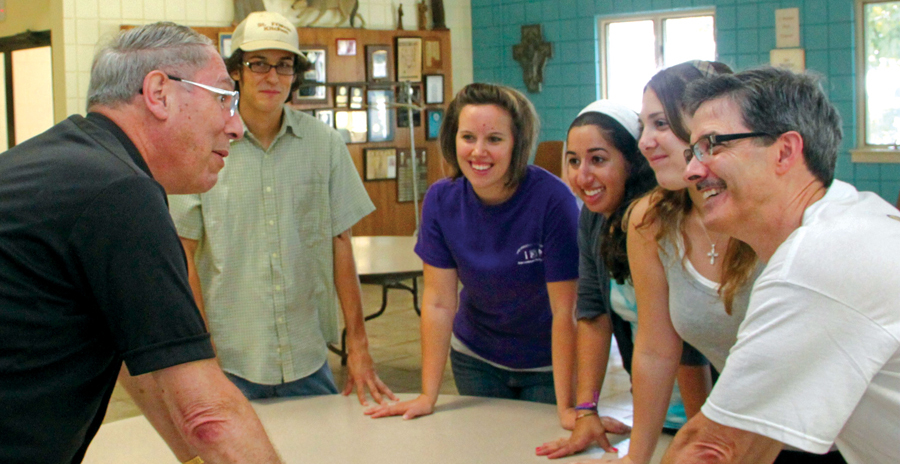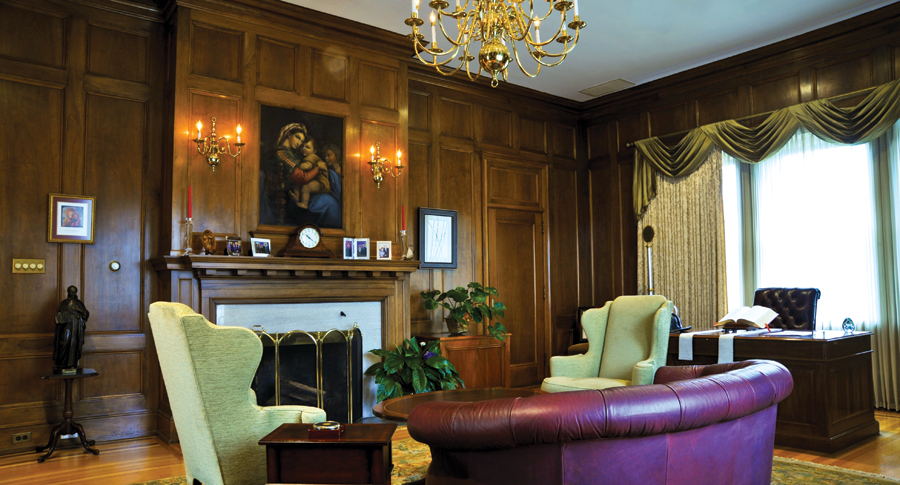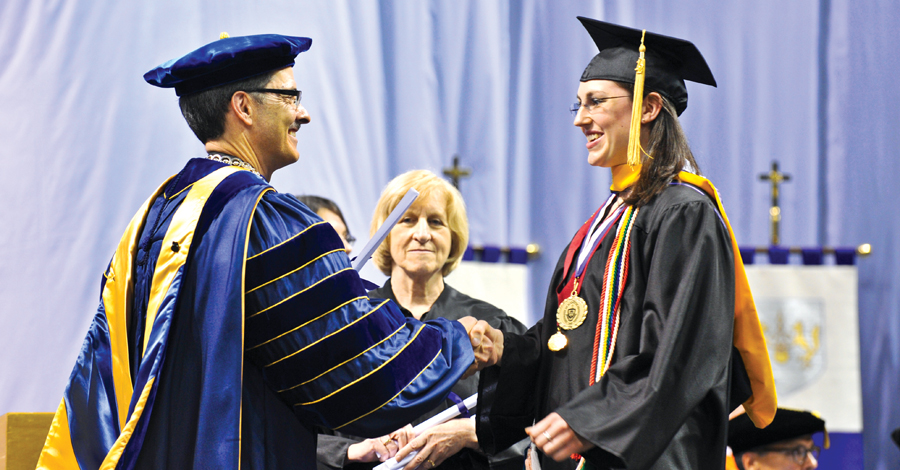Kevin P. Quinn, S.J., Aces Our Question & Answer Segment
As Father Quinn enters year two of his presidency, The Scranton Journal caught up with him to discuss a myriad of topics, including the University’s new Jesuit Center, the importance of multicultural experiences, and the best advice he’s received as president. In this far-ranging interview, Father Quinn even breaks down his golf game, though you must go online at scranton.edu/scrantonjournal to find out how he’s faring on the links. Without further ado, here is our president in his own words.
You called the establishment of the University’s new Jesuit Center a “personal priority.” Why is this new center so important to you, and how will it impact our University community?
The Jesuit Center is definitely a personal priority of mine. Our mission and identity as a Catholic and Jesuit university is of critical importance to the University’s self understanding. The idea behind The Jesuit Center is to promote programs -– a number of different types of programs – that will increase the understanding of the mission and identity of The University of Scranton among our faculty and staff. They are the ones who have and will continue to carry on our mission. I’m very excited about the center’s creation, and I’m thrilled that my close friend, Ryan Maher, S.J., is the founding executive director.
You have been quoted as saying, “Just months into my first year at Scranton it was clear to me how our faculty and staff embrace the transformational quality of the Catholic and Jesuit education we offer.” Describe what you saw?
Our faculty and staff embrace the transformational quality of a Scranton education in any numbers of ways. Let me just name two. They are conversant in the art of discernment, a cornerstone of Jesuit spirituality, and encourage our students to develop the habit of reflection with the goal of matching their personal talents with answering the world’s needs. Faculty and staff accompany students on immersion trips to various countries in the developing world, and our faculty offer several annual “travel classes” to countries in Central America, Asia and Africa. These global experiences are nothing but transformational.
What has surprised you about Scranton – either the city or the University – during your first year as president?
Everyone is related to one another. And if you are not related, you know everybody. [Laughs.] I knew Scranton was a small city, maybe not geographically, but it strikes me as the type of place where no one has a secret.
Prior to coming to Scranton, you spent the better part of two decades working as a college professor. What do you miss about not being in the classroom on a regular basis?
I’ve always enjoyed being around bright and articulate students, and I do miss that now. I hope to return to the classroom after I figure out how to be a university president.
If our students take away just one lesson during their time at Scranton, what would you want it to be?
That is an important question because I think it is linked to our notion that a Scranton education is transformational. I would put it this way: I want our students “to love and serve in all things.” It is a saying from St. Ignatius Loyola that I often use. Regardless of what our students study, and what they go on to do with their lives, I hope that they will be – in some sense – selfless.
In your Inauguration address, you said you wanted to provide greater opportunity for international study, increase diversity on campus, and expand multicultural experiences that would help students think globally. Why is this important to our University’s mission?
I think an important part of higher education is for students to encounter people who are different than they are. It’s important to engage people from different cultures. We grow by meeting and learning with people who are different than ourselves. I think that has been a long-standing hallmark of Jesuit education. Everybody talks about global education, but I think Jesuits have been working at it for a long time.
During your first year at Scranton, you organized “Coffee with the President” events, informal gatherings with full-time faculty and staff to get to know one another on a more personal level. What have been your takeaways from these conversations?
My takeaway is simple: our faculty and staff are very dedicated, very hardworking, committed to the University, and happy to work here. This makes my job a whole lot easier.
What was the best piece of advice you received about serving as a university president?
I’ve received much advice – both solicited and unsolicited. The best is, “Don’t take yourself too seriously,” and that humor helps.
Did you ever see yourself as a university president?
When I started teaching at Georgetown University Law Center almost 20 years, all I wanted was to be a successful law professor. It was only in the last five to 10 years that I began to consider the possibility of higher education administration. One of the reasons that I moved from Georgetown to Santa Clara University was to get some administrative experience, and to judge whether administration was for me. My decision should be obvious.
When you’re not working, how do you spend your free time?
I like to exercise daily. I attempt to play golf and struggle to negotiate the hills around here on a bicycle.
How’s the golf game?
Mediocre. I’d like to improve, but that requires practice. [Laughs.] As for where I need to improve, I would say in all facets: can’t drive well with consistency and my short game stinks. Call me a masochist, but I love the sport.
Finish this sentence, “The best part of being president of The University of Scranton is?”
Leading a great institution – and having fun doing it.







